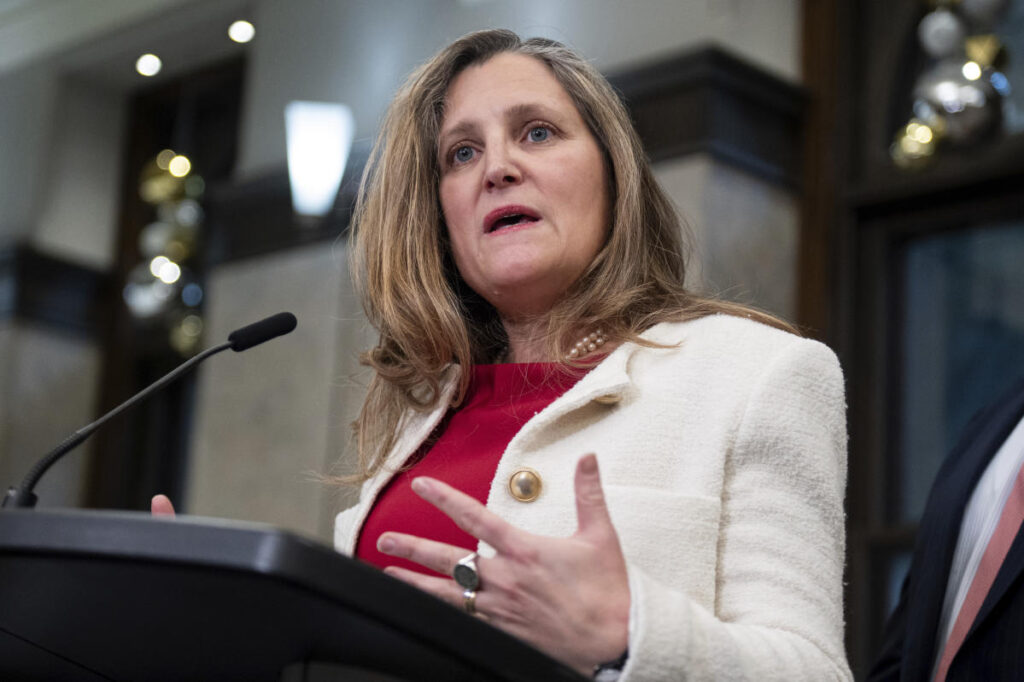Canadian Finance Minister Chrystia Freeland, a significant figure in Prime Minister Justin Trudeau’s Cabinet, announced her resignation on Monday amidst growing challenges for the Trudeau administration, including declining public support. Freeland, who held dual roles as deputy prime minister and finance minister, has played a crucial part in the Canadian government’s fiscal policies, particularly during the COVID-19 pandemic. Her departure signals potential shifts within the federal Cabinet as Trudeau navigates a political landscape marked by dissatisfaction among voters.
In her resignation letter, Freeland revealed that Trudeau expressed his desire to relieve her of her duties as finance minister during a conversation on Friday. The prime minister offered her an alternative position within the government, yet Freeland felt that continuing in any capacity would not align with her principles or vision for the country. She articulated that there was an apparent divergence between her and Trudeau regarding the best strategies for Canada, emphasizing that both she and the prime minister had reached a point of disagreement that made it challenging to work collaboratively.
Freeland’s resignation could reflect deeper issues within the Liberal government, which faces criticism over various economic challenges, including inflation and housing affordability. These pressing concerns have become focal points for opposition parties and have contributed to the Trudeau government’s diminished popularity. As Canadian voters express their frustrations, the government must confront issues that have immediate impacts on daily life, potentially polarizing constituents depending on the effectiveness of its responses.
Freeland has been a key player in implementing fiscal measures aimed at supporting Canadians through unprecedented times. Her initiatives have included stimulus packages and recovery funds, which were designed to mitigate the financial hardships caused by the pandemic. Despite these efforts, the government is still grappling with the criticism of its economic management, suggesting that public sentiment may not fully recognize the complexities involved in policymaking during crises. This has left Trudeau’s administration vulnerable to criticism from rival parties who argue for alternative economic strategies.
The broader implications of Freeland’s resignation extend beyond her individual role. It raises questions about the future direction of the Liberal government and the nature of leadership under Trudeau. As the Prime Minister contemplates reshuffling his Cabinet, the need for renewed approaches to critical issues becomes evident. Observers of Canadian politics will be closely watching who Trudeau appoints to fill the finance minister position and whether new leadership will successfully address the mounting challenges and restore public trust in the government.
As Canada moves forward, the political landscape is likely to remain tumultuous. Freeland’s departure highlights the complexities of governance in times of crisis, underscoring the necessity for coherence among Cabinet members. The Trudeau administration must unify its strategy and work effectively to navigate economic hardships while also appealing to a public that is becoming increasingly restless. The decisions made in the coming days will be pivotal as the government attempts to regain the confidence of Canadian citizens while balancing internal dynamics within the Cabinet.

